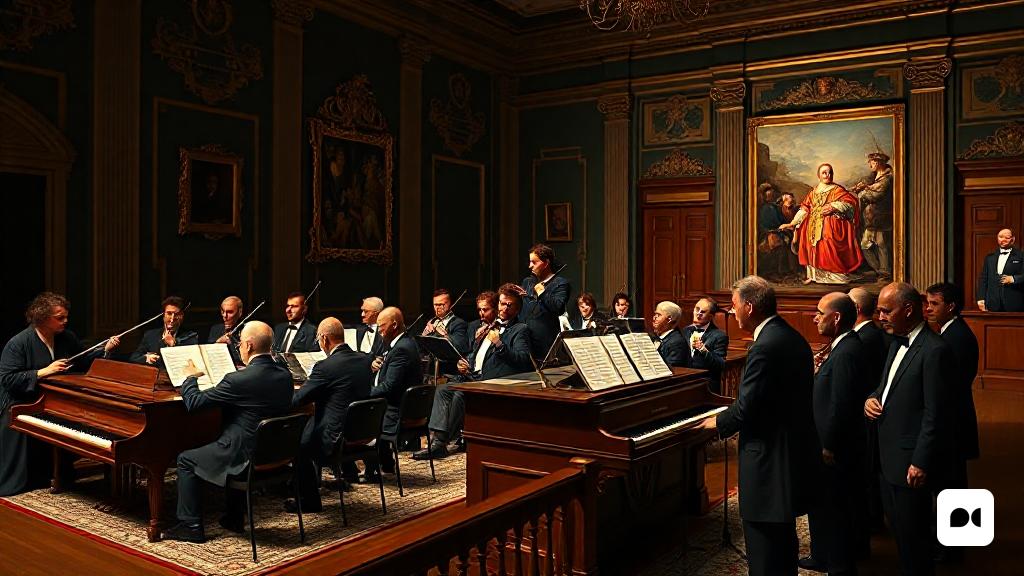A Musical Journey to the Prussian Court
The Ensemble Diderot, one of the most outstanding groups in the interpretation of Baroque music, invites us to explore the works of four composers who shone in the shadow of Frederick II the Great. This initiative not only highlights the musical wealth of the Berlin court, but also offers us a unique opportunity to discover forgotten talents that contributed to the cultural splendor of that era.
The Art of Interpretation: A Record That Makes History
Ensemble Diderot’s new album focuses on the harpsichord concertos of composers such as Christoph Nichelmann, Carl Heinrich Graun, Christoph Schaffrath and Ernst Wilhelm Wolf. This selection is significant, as it deliberately excludes the works of Carl Philipp Emanuel Bach, one of the most recognized names, to give prominence to those that deserve to be rediscovered. It is the first time that these pieces have been recorded, offering a new air to baroque music.
Frederick II: The Passionate Patron
Frederick II of Prussia was not only a military leader, but also an ardent admirer of the arts. Despite his father’s expectations to make him a conqueror, Frederick found his true passion in music and literature. His influence in Berlin transformed the city into a cultural epicenter, attracting artists and musicians from all over Europe.
A Cultural Legacy
The new monarch, along with his musical prowess, sent the composer Carl Heinrich Graun to Italy to recruit talent for the opera he was building, thus reflecting his commitment to culture. In addition, Frederic composed a good number of sonatas that were performed in the halls of the court, leaving an indelible mark on musical history.
Court Musicians: Forgotten Talents
The musicians who worked in the service of Frederick II left a significant mark, but have often been overshadowed by better-known names. Carl Heinrich Graun, for example, was not only a prolific composer but also the creator of the Berlin Opera. Christoph Nichelmann, in addition to being an excellent harpsichordist, saw music as a tool for emotional well-being.
Nichelmann’s Musical Commitment
Nichelmann was an advocate of music as a medium for emotional expression, a concept he embodied in his writings. His rivalry with Bach was notable, but his contribution to Baroque music is undeniable.
L’Hermano de Frederic: The Influence of Anna Amalia
Princess Anna Amalia, Frederic’s sister, was another key figure in the promotion of music. It hosted composers such as Christoph Schaffrath and Ernst Wilhelm Wolf, contributing to Berlin’s cultural atmosphere, despite tensions between artists.
An Evolving Musical Legacy
The contribution of the Diderot Ensemble is essential for the preservation and dissemination of Baroque music. His recordings not only rediscover forgotten works, but also remind us of the diversity and richness of Europe’s musical heritage. As we delve into this music, we realize that history and emotions are intimately intertwined, offering us a window into the past.

